Paul Scheer’s Top 3 Embarrassing Places
Actor and comedian Paul Scheer can’t go back to these places without cringing.
Listen and subscribe on Apple Podcasts, Spotify, and all major podcast apps.
Dylan Thuras: For this conversation, we asked you to choose places that you felt like shaped or influenced your life in some fundamental way.
Paul Scheer: Absolutely.
Dylan: I have to say the three places, when I saw your list of three places.
Paul: Yes.
Dylan: I was filled with a mild sense of anxiety.
Paul: You know, well, I think one of, you know—and I love this point of view—but I think one of the reasons why I picked these three places was because there is trauma in each one of these places, right? And, you know, and I had just finished writing my book, which is called Joyful Recollections of Trauma. And I realized that the things that influenced me, it’s kind of like the way that, you know, a lump of diamond can be squeezed into coal, right? Like, I feel like some of these places did that. I may not have loved it in the moment, but I came out of it better. Sometimes a travel experience is important to kind of change you or challenge you.
I’m Dylan Thuras, and this is Atlas Obscura, a celebration of the world’s strange, incredible, and wondrous places. Today, I’m talking with actor and comedian Paul Scheer about his life in three places. You probably know Paul Scheer. Maybe you know him from TV, things like The League or Black Monday, or you might know him from his very funny, big podcasts, like How Did This Get Made? and Unspooled.
Paul has a really distinctive sense of humor, and it’s very clear in the stories that he chose to tell. Because when I asked him to think of three places that impacted him, he did not choose memories that made him look heroic or good or were like, you know, sweet stories. No, he chose three very funny, fairly personally embarrassing stories. Because as he put it to me: trauma is the fire in which we are forged. Like the story he told about a mishap on a trip to Disney World, or his solo adventures as a kid at a family ranch resort in upstate New York, or the time he worked up the nerve to speak to a big-time celebrity at Comic-Con (and will be the last time he ever does that). Each of these moments changed how he approached his life as a parent and as an actor. But today, these stories, it’s just, they still make him cringe internally. The memories he made in these three places will stay with him forever, whether he wants it or not.
This is an edited transcript of the Atlas Obscura Podcast: a celebration of the world’s strange, incredible, and wondrous places. Find the show on Apple Podcasts, Spotify, and all major podcast apps.
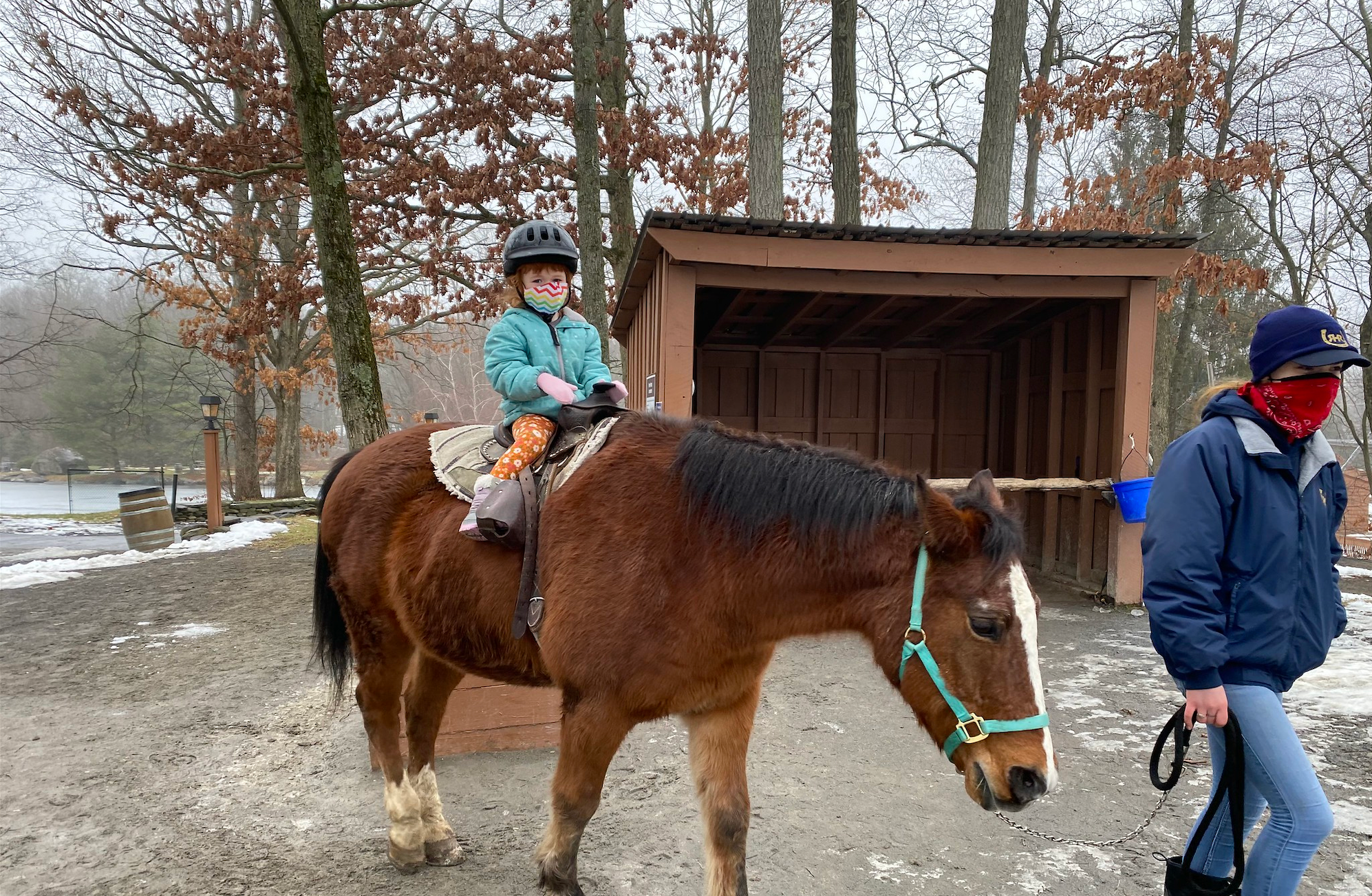
Paul: So the first place is Orlando. It is Walt Disney World. Up until I was 18 years old, I visited this place, I would say, once a year, and multiple times twice a year. So yes, I spent many a time at Walt Disney World. And I guess this thing that would happen a lot, my parents were divorced, and a ticket to Orlando, I remember being in the—reading the papers, it’d be $74 to Orlando.
It was almost—it was a very cheap flight. So my dad and I could go and do like a three or four day trip there. And it was at a point when, again, Walt Disney World has become prohibitively expensive for a family. But man, oh man, they made it worthwhile. Like we stayed on property, we would get free tickets, right, to go to the park. It was a whole different ballgame. And so we went there a lot. But one of the first times I went there, we stayed at this hotel. And I can’t remember the name of this hotel. Now I had the problem of this” I was, I am lactose intolerant. And I did not find that out until a trip to Walt Disney World.
Honestly, if you’re lactose intolerant, you’re going to find it out there because everything has milk and cheese in it. And man, oh man, I found out in a way that was intense. Like it was Alien, the movie, the original movie level explosions, right? I was like, my body was wrecked. I destroyed this hotel. I destroyed it to a point where my dad and I snuck out in the middle of the night. We were like, we got to get out of this hotel because it was—there’s only so many things I could soil in so many different ways. And my dad was like, we need to go home.
Now that’s an intense Disney trip, right? I learned I’m lactose intolerant. You know, I can’t eat my Mickey Mouse bars anymore.
Dylan: So, okay. So your first place is Disney World. Your second place is like in a similar vein. And I have to say, I am like 30 minutes away from this place. We could continue this conversation, I could drive there and we would still be talking as I arrived.
Paul: Wow, now that’s fascinating.
Dylan: I didn’t know it existed. I did not know it was there. And so suddenly I was like, what the hell? Okay, so what is this place? Tell me about the second place.
Paul: Okay, so this second place. So now I did say that we went on a lot of family trips to Orlando. And I guess what I should maybe say there’s a caveat is my dad and I did a lot of trips there. My mom and I didn’t do as many trips there. I can count on like really like one hand, the amount of trips I went with my mom to places.
One was a place called the Rocking Horse Ranch. So many people were familiar with this place in the East Coast because I think it was a destination. It was a family style resort that was very much based in ranch related activities. Kind of like a City Slickers meets Club Med for families. So they did have a lot of kid related activities, but it was just like, it was ultimately just horseback riding, which I could do at home. I said, you know—and then it was like horseshoeing. It was, you know, playing a game of horseshoes. You know, it was like a lot of horse related things.
I’m there with my stepsister on this one, but my stepsister is older. She’s in high school. So she basically is like running into the woods, smoking cigarettes, listening to The Who bootlegs. You know, I don’t see her all day. And I’m forced to be with these kids that I don’t know that seemingly have friends or siblings. No one’s making, you know, comments to me. So I just see—sadly see myself eating my boxed lunch alone, doing something that I hate. So I begged my parents. I’m like, please don’t make me go back to this day camp. I hate it. I just let me like—be, I’ll do whatever. And they’re like, “Well, if you don’t go to day camp, there’s nothing for you to do.” And I’m like, “Fine.” Like literally, I will stay in the hotel room.
And I just, you know, as an only child, even though I had the stepsister who was kind of a, she was kind of an occasional feature in my life because her parents, well, her mom, she had, her mom had custody. So she wasn’t always with us—occasionally. So I was used to being an only child and I played a lot by myself.
I’d always act out these like action movies in my head. And I would play like a grizzled cop, you know, men in their thirties and cops divorced, having kids, and I’m out there play acting these scenes. I would just play by myself. It looked to me like, if you saw me in the distance, it looked like a kid that was having a full-blown manic episode. I’m yelling at myself. I’m on my knees begging for mercy. I’m arresting my—putting handcuffs on myself. Now my character did smoke. I didn’t smoke. But you know, what I did was I pocketed a bunch of matches from the hotel room. And I had these matches and I would just, I liked the idea of lighting, right? And I’d light and I’d throw it, you know, and I’d just light, throw. It just felt cool.
And so I was doing that around a lot of dry brush, which, you know, if you’re not stomping out the match well enough, that’s going to cause some problems. And I find that out when in the middle of my playing, a fire starts.
Dylan: Oh my God.
Paul: Like a fire is—and not only does it start, but it grows quickly. And I’m like, oh my God, I don’t know what to do. And as a kid, you’re like, well, I’m not going to call for help because that would show that, A, I’m irresponsible. And I got this, I can figure this out. You know, so I start stamping on it, but the fire has grown too hot. I run inside to my room and I grab like, you know, they have those little bathroom cups. Like, you know, they’re not, they’re not very big, but they’re, you know, they’re just, just big enough to like give you a little gargle after you brush your teeth.
And I run in and I grab one of those and I run out with it and I throw it on the fire. It does nothing. And meanwhile, my step-sister had come back and she can see that I’m panicked. And I, you know, keep on running in and out of the bathroom. I keep on trying to do this. But now on the third try, the third attempt of this fire growing, it has reached—
Dylan: You’re just going back and forth to get little tiny cups of water.
Paul: Little tiny cups of water. I’m passing fire alarms left and right. And my step-sister kind of stops and she’s like, “What are you doing?” I’m like, “Nothing. I’m not doing anything. I’m fine. I’m fine.” And as she says that, from behind her—she’s standing in front of a window of this place—I can see the fire engulfing the window. And man, oh man. And then I pointed at her. I’m like, “it’s a fire, but I didn’t start it. I didn’t start it.” You know, she’s like, “What?” And like, she sees this fire. She’s like, “Holy shit, get your parents.” And I’m like, “No, I can’t. They said I shouldn’t bother them until 5:00.” She’s like, “Get your parents.” Knock on the door.
And I’m like, “There’s a fire. We didn’t start it. I didn’t start it.” And my mom kind of runs out and sees this blaze. Long story short, the firemen come, they put out this fire, minimal damage to the cabin—I think a coat of paint would probably fix it. Burn marks, not like burnt. And they kind of start to question me. And I know if I say that I started this fire, I could go to jail. And I held to my lie. I kept on doubling down. “I just found, I just found it.” And I was like, “You know what? Let me, let me help you, investigate how it could have started,” right? You know, so I go out and I’m looking around and I find my match.
I find that match that I threw out there, you know? And I go, “Oh, here it is. Here it is. The match. It probably—probably someone was smoking. They didn’t mean to.” And they said, and they clearly—you know, I think I’m being smooth—they know this kid’s lying. He set this fire. You know, they’re really kind of, they’re on me. And my stepsister is watching this whole thing. And at one point the guy says, “Empty your pockets.” So I pull out my pockets and there in my pocket is the matches, the matches I had stolen from the hotel.
So now I’ve not only found the incriminating thing, but I also have the other part of it, right? So I’ve now connected the pieces for them. I’ve done the detective work. I’ve busted myself. And, um, my stepsister kind of steps out of this little semicircle of people watching me be questioned by the fire people. And, she’s like, “Oh, he couldn’t have started that. He was with me. We were together and we were watching TV.” And I was like, oh my God, she saved me. My stepsister saved me from going to jail, saved me from this dark version of my life that would have been otherwise. So the Rocking Horse Ranch represents to me this place that I absolutely hated.
Dylan: Paul Scheer, he’s talking to us about places that he’s not ever been able to forget because they are embarrassing, anxiety-inducing stories that have left a deep mark upon him. The first two were from his childhood, but this next one happened a lot later.
Paul: San Diego is the location that—and specifically the San Diego Convention Center. That is my place, the San Diego Convention Center. Because for this one weekend a year, Comic-Con comes through and it is, and it changes the entire city of San Diego. If you’ve ever been there during this time, the streets are filled with people in cosplay, every hotel room is booked. It’s like being in Blade Runner. You’re just in this weird world of costumes and characters, and you’re just pushing your way through, eating the worst stuff.
When I first started with going to Comic-Con, I had done some TV shows already. I had been on Human Giant. And so there was a little bit of notoriety that I was able to cash in on. I could go to parties and stuff like that, and it was kind of fun. And as I got more and more to be a staple of Comic-Con—going back every year, getting my hotel, I got to do different shows—and as the shows opened up doors, I got to host a panel for Lost, the last season of Lost. I hosted that panel. Or not, I hosted the panel, sorry, I did a bit in that panel, which is a whole other story that’s very long, convoluted and involves a velvet painting of a polar bear.
But I had an all access pass. And one of the things—because they’re not paying me to do any of this stuff—was, “Hey, we’ll give you an all access pass. We’ll get you in everywhere. And we’ll give you two.” So I had this card that would allow me backstage anywhere. It was the ultimate backstage pass. And this is awesome. I have a wife who couldn’t be further from anything—not even Twilight is appealing to her. Nerdy sci-fi shit is not gonna, in any way—but I’m like, you know what? If I can bring her to this, and kind of show her the backstage version of it, that’s cool. And so they were doing the Marvel panel. And it was the Marvel panel very early on in the Marvel universe. So much so that Robert Downey Jr. had just flown back from shooting Iron Man 2. And they were gonna premiere some footage of Iron Man 2. So this is like really at the height of when shit is popping for Marvel, right?
Dylan: It’s jumping, yeah.
Paul: And so, you know, I bring June backstage. We go into the Hall H room. And that’s where all the actors and directors and everybody is. They’re lounging before they go out onto the stage. Now, quick—just kind of a pushback, and I’ll make it quick—but I just finished shooting a movie and on this movie, I would travel every day by boat to our location. It sounds more exotic than it was. The movie is called Piranha 3D. So we would travel by boat and you would be sitting on this boat going to set and you just get into these conversations with people beyond your regular cast.
One of the guys on this boat was a really good friend of Robert Downey Jr. Or so he said. So much so they called him RDJ. “Oh, RDJ, RDJ.” He talked about RDJ all the time. And my ears are always open for bullshit. I’m always like, man, I don’t know if I—do you know RDJ? Like, you know, like it sounded a little bit like, oh, I could understand that you’re like tertiarily involved in some world, you’re a producer—right? But he mentions a lot of people that I know that I’m like, oh, well, you may not be full of shit. Like, you know, a lot of non-known people.
So I’ve come to believe him. And I wrapped that movie a couple of days before Comic-Con and he says to me, “Hey, if you ever bump into RDJ, tell him I said, hi.” I was like, “Yes, of course,” knowing that I’ll never do that. I’m like, oh, that’s a weird conversation. You know?
Anyway, they get the call. Hall H gets the call, right? “All right, Ironman 2 cast, or Marvel panel, everybody head down please.” And we’re all heading towards the elevator. Now we get to the elevator and I am standing right—my toe of my foot is at his heel. Like that’s how close we are. It’s not like he’s not across from me. He’s closer than—I just would have to lean forward and I would be touching him.
And, you know, I had some margaritas at lunch because I also got June a margarita to loosen her up a little bit to make her feel like she’s going to enjoy this. And June had been in a movie with, with Robert Downy Jr. It’s a movie called Zodiac. So I’m like, well, I mean, you know, like I did say I’d—
Dylan: You got to weigh in.
Paul: I’d say hi to RDJ. And my wife was in a movie with him. This is, this is casual. This is casual. We’re going on the elevator. And I go, “Hey, Robert,” right? Real casual, real too casual. And he turns and I say—and I won’t reveal this person’s name—and I say, “Oh, you know, I just did this movie with so-and-so. He says, ‘say hi.’”
And when I say that to him, his face looks at me so quizzically like, “What?” I’m like, “Oh, I’m friends with …,” and I say the guy’s name again. And it’s not going forward. It looks like when you’re trying to talk to a dog and the dog is like, “Huh?” Like what are— cocking its head a little bit. And now I start giving way too many—I mean, “Well, he looks like this. He’s got this kind of a thing, and his hairs like that, and his eyes, and he has this tattoo.”
Nothing. And at this point now I feel like, now I’m fluttering. Like I am—
Dylan: You’re panicking.
Paul: I am panicking. My wife, who has been in a movie with him, has let go of my hand and kind of done that Homer Simpson thing where she goes back into the bushes. Like she just disappears into the crowd. I don’t know where she is. So now I’m alone. I feel his bodyguards, they turn, they look at me. And his bodyguards are thick, thick men, men whose necks feel bigger than my thighs. And now I’m starting to get that flop sweat. I don’t know what to do.
And I’m like, “Ah …” And he goes, “Hey man, I don’t know who you’re talking about.” And I’m like, “Oh, Oh, right. Uh, well I must have, um, gotten you confused with somebody else.” Who did I get confused with, Robert Downey Senior, right? I’m like, “I-I-uh,” and he goes, “Oh.”
Like, I’m confusing Robert Downey Jr. for someone else. And then, thank God the elevator comes and I make this choice. I’m like, I can’t go here. And I literally, I just wait. Crowd passes by me. I’m just like, I’m staying. I’m not getting on now. This is the worst moment of all time. You know, he doesn’t know who this is. I feel like I’ve embarrassed myself now. It had caused a little bit of a scene. Everyone gets on the elevator. June turns to me and she’s like, “What the f*** were you doing?” And I go, “I don’t know. My friend said he was a friend with him. He said, ‘say hi!’ He said ‘say hi!’ He said ‘hi!’”
Dylan: And what’s bizarre about this Paul is you’re there with your wife who was in a movie that he was also in. And you’re there talking about someone who’s like a tertiary—
Paul: Yeah. Well, because I’d have to throw June into the thing. I’d have to say like, “My wife was in a movie with you.” And then June would be like, “I don’t want to be a part of this.” My wife has no desire to be in this conversation. So he goes away and I live with this thing. I’m like, I just feel like he’s like, “This guy is weird.”
Dylan: Well, do you feel like it is revealing about yourself that the three places you’ve chosen are all like, not re—they’re all like, uh, simulations of reality.
Paul: Yeah, right?
Dylan: And then they’re simulations of reality where bad things happen to you. I don’t know what that says, but …
Paul: You know, it’s like, it’s so interesting, right? Because I think that, you know, I could tell you about walking around in Paris. I could tell you about going to Japan. And all these places are beautiful and I loved it. And they were like, at some even kind of—really like kind of spiritually fulfilling places. But each one of these, and this is a theory that I’ve said now a bunch, which is trauma is the fire in which we are forged. And there is something about these moments that make me still feel uncomfortable to this day.
Like these moments where I’m like, “Oh my God.” Like I will think about any of those moments: wrecking that hotel embarrassing myself in front of Robert Downey Jr., starting this fire. And I still feel guilt. I, you know, I still feel like this thing. And I think you’re right. It’s like this—I’m supposed to be in the safe place, but I’ve pushed the boundaries too far. And the facade of fake falls down and the real world of awkward, dangerous, and accountable pops up. And then it’s like getting sucker punched. My defenses were down and that was, and that—so yeah, I think you’re right. You really well said, like I have, I have punctured the fake reality of it. Like, you know, you’re only supposed to look, not touch. I touched, the thing broke off in my hand, and now I’m like, “Oh no.” And someone’s like, “You owe us money.” Like, this is it.
And those are these moments. Cause I think it also is—it’s made me approach so many things differently, which is, I never talk to celebrities anymore. I don’t, I will not talk to them. If I’m the biggest fan, I will never meet them. I will never go out of my way. I will try to be casual, but I’m not gonna— I did a movie with Nic Cage. I sat next to him, never said a word. He introduced—he said things to me. I would pop in, but I’m not, I won’t do it. Don’t meet my heroes, or the heroes shouldn’t meet me, whatever the way it should go.
And then finally, you know, I do think that there is this thing where—I do feel like getting sick there and being with my dad and escaping away with my dad, there is something really fun about this. I think, you know, destroying a place like this, but being in it with your dad, being in cahoots with your dad, there was something fun about us escaping this hotel in the middle of the night and getting the hell out of there.
But, yeah, I think a lot of the times I spent as a kid, it was alone. And so I think as a parent now, I try to make sure that I make my kids not feel alone, without feeling like I’m over on them, but I’m like, we’ll get through anything. If you puke in a hotel room and shit in a hotel room, we are going to get out together as a family and never feel bad about it.
Dylan: Thank you, Paul, for taking the time to do this.
Paul: Thank you so much.
Dylan: Check out Paul Scheer’s very funny book, Joyful Reflections of Trauma. If you want to hear more stories like this or follow his excellent podcasts, How Did This Get Made? and Unspooled wherever you get your podcasts.
Listen and subscribe on Apple Podcasts, Spotify, and all major podcast apps.
This podcast is a co-production of Atlas Obscura and Stitcher Studios, and this episode was produced by Tameka Weatherspoon. The production team includes Dylan Thuras, Johanna Mayer, Chris Naka, Doug Baldwin, Kameel Stanley, Manolo Morales, Baudelaire, Gabby Gladney, and Talon Stradley. Our technical director is Casey Holford, and this episode was sound designed by Tomeka Weatherspoon and mixed by Luz Fleming. Our theme and end credit music is by Sam Tyndall.

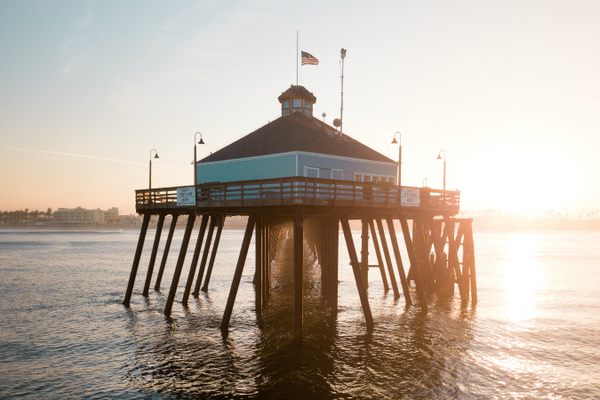



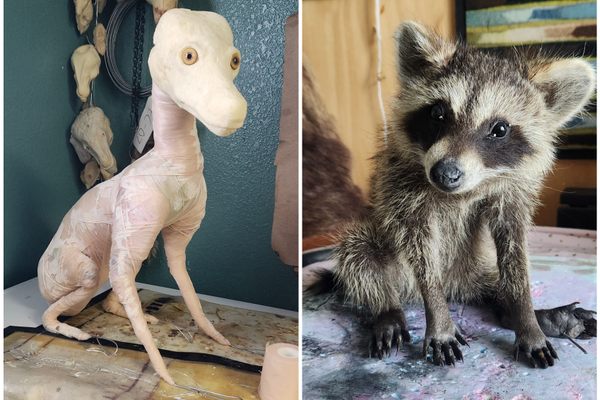
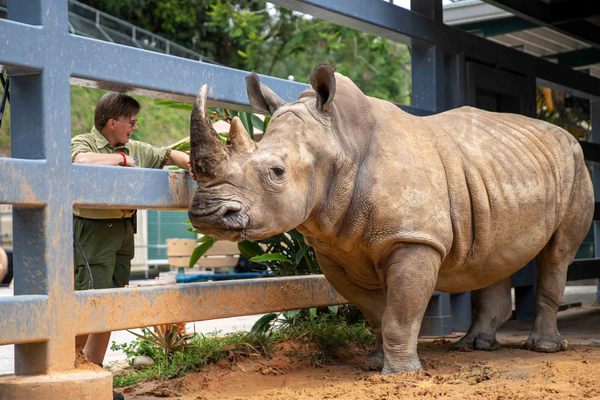
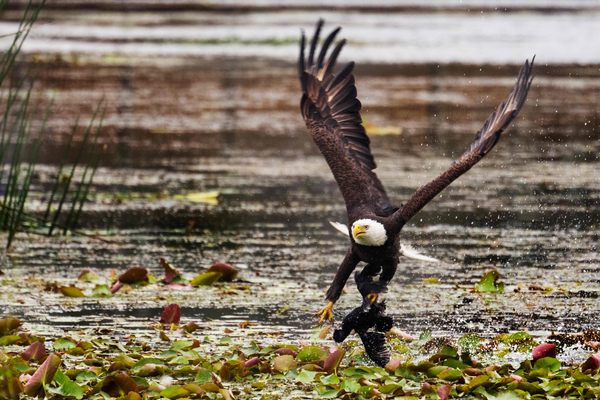
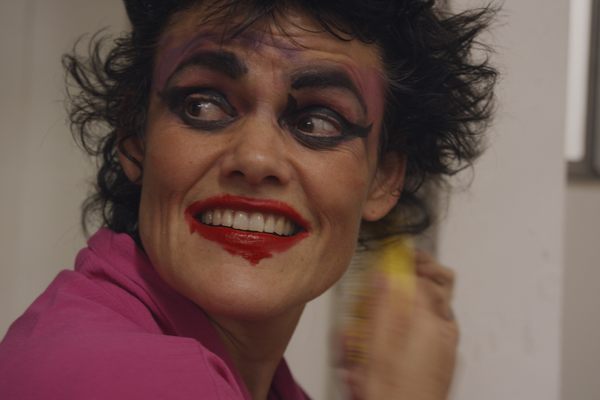
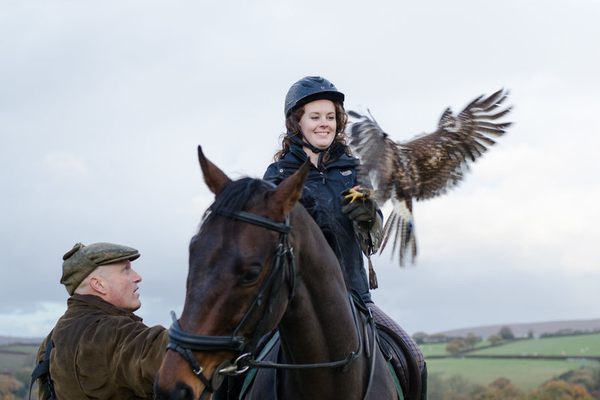
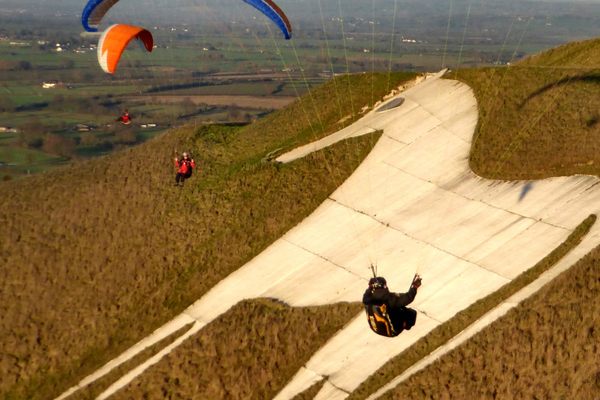
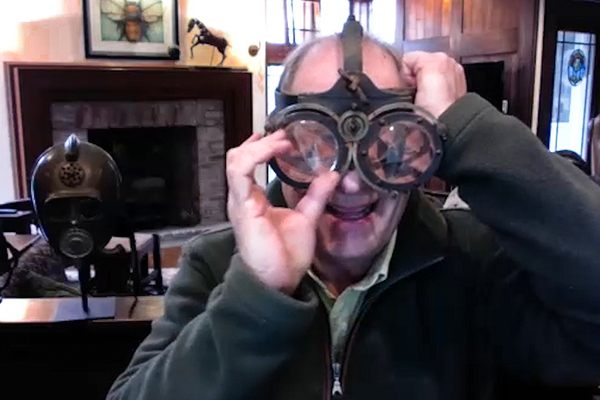
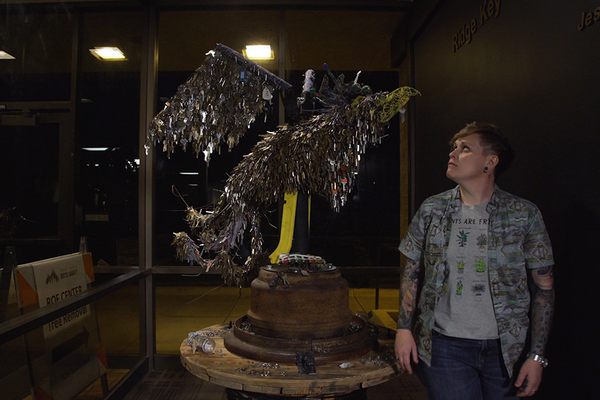


Follow us on Twitter to get the latest on the world's hidden wonders.
Like us on Facebook to get the latest on the world's hidden wonders.
Follow us on Twitter Like us on Facebook